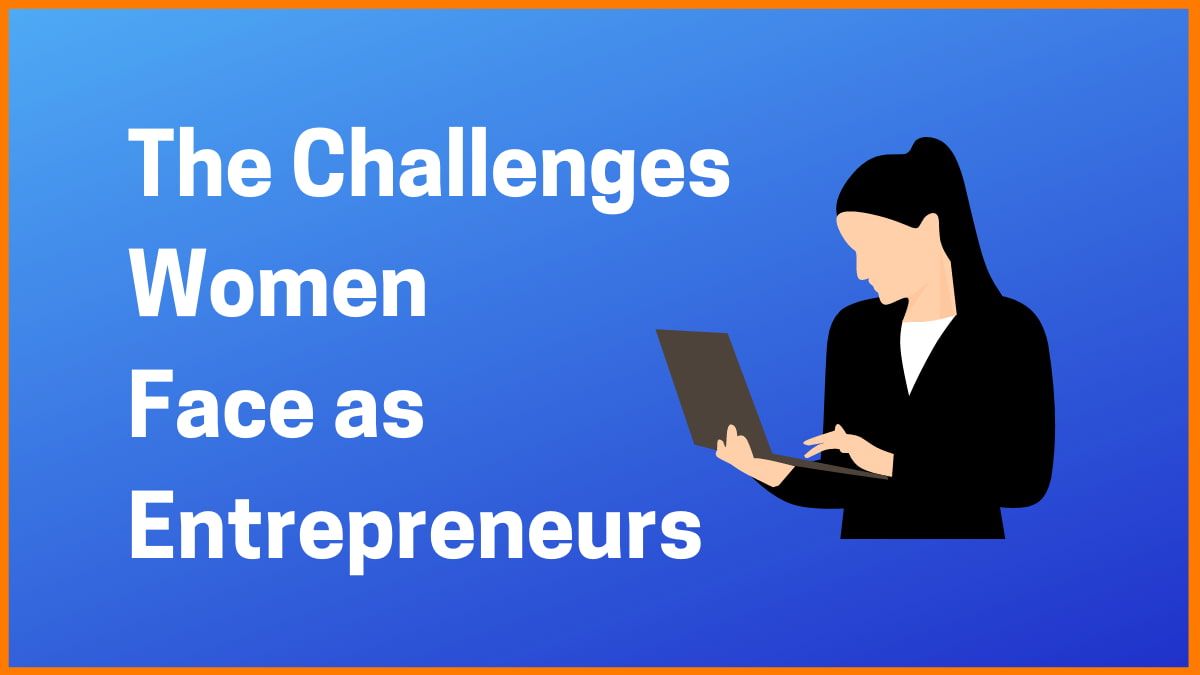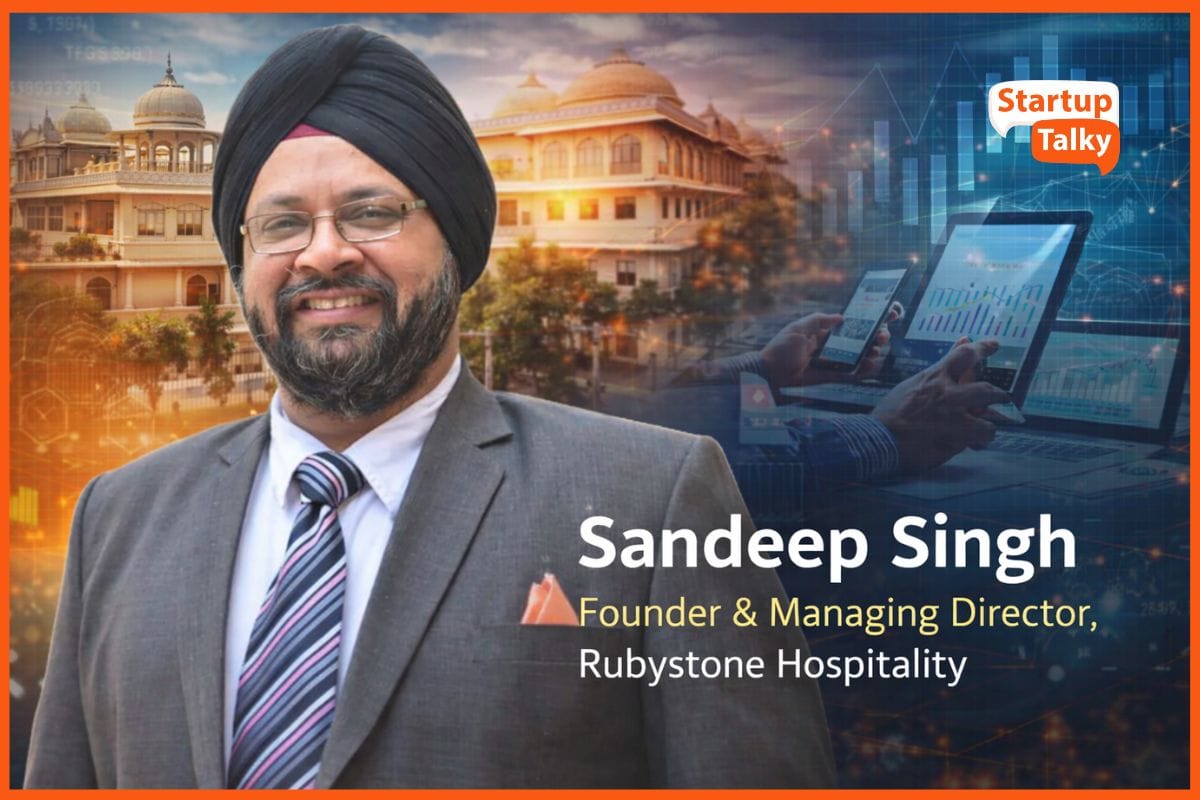Challenges Faced By Entrepreneurs While Starting Their Own Startup
📖 Learning
Every startup founder is well aware of the fact that the journey ahead is full of obstacles. Sometimes they are prepared for the unusual circumstances, whereas most of the times, the hurdles are like a bumpy road which needs to be crossed with patience, perseverance and planning. Whether that’s because you just didn’t anticipate the challenges, you’re unsure of the best way to respond, or you don’t yet have the resources you need to address them properly.
It is important for startup founders to execute their business plans in a manner that proves their vision and worth. We, at StartupTalky, spoke with professionals and top executives of companies across the country and asked them the challenges they faced while starting their own startup and how they overcame them. They discussed the most challenging events and circumstances in the dynamic world of startups and also shared their personal experiences while tackling the hurdles.
Rohit Chawla - CEO, Bare Anatomy
Satish Shukla - Co-Founder & Head, Marketing and HR, Addverb Technologies
Lalit Arora - Co-Founder, Vingajoy
Amit Tyagi - Founder and CEO, Neuherbs
Ruhan Naqash - Co-founder & Chief Marketing Officer, MyCaptain
Geeta Singh - Founder, TYC Communication
Akhand Swaroop Pandit - Founder and CEO, The Catalyst Group
Sheshgiri Kamath - Co-Founder and CEO, Kapture CRM
Prasad Rajappan - Founder and CEO, ZingHR
Rohit Chawla - CEO, Bare Anatomy

Bare Anatomy is a premium, beauty brand with personalization at its core. Our customized range of hair and skincare products are freshly made once customers place their order. All our formulations are made with clean and effective ingredients and go through stringent quality checks to offer our customers the very best.
Since we don't mass produce batches of standard formulations, the biggest challenge we have faced is scaling up our production processes rapidly. Other beauty brands in the market mass-produce so abrupt spikes are not that hard to deal with as they have ready inventory and a more drawn out time span of usability due to the preservatives they use.
To solve this, we have automated our manufacturing facilities to cater to dynamic demand patterns and meet seasonal spikes.
Satish Shukla - Co-Founder & Head, Marketing and HR, Addverb Technologies

We are born out of a desire to ensure that India does not miss out on the Industry 4.0 wave, started its journey with a team of 15 engineers who came together to foster innovation in the field of IoT, Robotics and IT. The biggest challenge was to educate the Indian manufacturing diaspora to embrace automation. Now the sector has taken a move and gradually experiencing the inevitable need to automate its processes.
Over a period of time, we have established ourselves as a preferred automation partner across India and now we are on our way to become a global Robotics player launching ourselves through partnerships across geographies and acquiring multinational client
Lalit Arora - Co-Founder, Vingajoy

It's not easy to establish brand value. It is not just a matter of offering a name or an attractive logo or a slogan. It is one of the most challenging tasks. Brands are created through a wide range of touchpoints; each time a customer interacts with a brand, it forms an association. This means everybody in a company is having an effect on the brand. The central aim of the brand building is thus to keep the message consistent across all platforms, media and time.
This demands that the brand be kept alive by seeking new ways to express its message so it remains consistent. This means making consistent and adapting necessary improvements across the board to remain on top of the trends. The major challenges were the monopoly of competitors in the market. In India, people don't experiment with new brands easily. It takes time to gain trust and acquire a stabilized market. But slowly and gradually, we have managed to create a brand position in the market.
Amit Tyagi - Founder and CEO, Neuherbs

A first-generation entrepreneur is one who undertakes the risk of running a venture for attaining profit and is doing so for the first time. But unlike the established ones that have undergone the trials and tribulations and have cemented their position, the new entrepreneurs are still not "risk-free." There is a lot to prove through their startups.
In the underlying stage, the first-generation entrepreneur attempts to raise the funding for the activity. The funding can be either by an individual or through a partnership if there should arise an occurrence of the organization. The difficulties faced by founders of startups have been-the absence of tolerance in taking care of issues, absence of sustained inspiration, Inability to widen their perspectives and make use of subconscious and so forth.
There are myriad of difficulties these startup owners often face-creating vision and thoughts, raising capital, gathering a group, finding the correct area, finding the right employees, beating rivalry, unanticipated difficulties and costs, staying aware of changes and patterns, leaving the business, monetary management, cybersecurity, winning the trust of the client, ability the customers and so on.
However, those who turn out to be successful have a few things in common- an ability to deal with clients and managing the working capital, an acumen for financial management, keen marketing skills, and confidence in their beliefs and ideas with a flexible approach to inputs. It's hard to be a first-generation entrepreneur stepping into a volatile market in which only the strongest survive but the right approach makes it worth it.

Ruhan Naqash - Co-founder & Chief Marketing Officer, MyCaptain
Generally, parents of young entrepreneurs are very sceptical because they see business as a huge risk and they wouldn't want their children delving into them. I truly believe that if you can make your parents believe in your idea and showcase your impact, they will take your side. A couple of things that helped me overcome this was financial independence, speaking and guest lecturing opportunities and my zeal towards the business.
Another challenge which is more of a positive one is that first-gen entrepreneurs don't come with a lot of contexts. This means they are not scared of playing with fire and learning from the process. This really helped me in my journey. While I had the guidance of my very experienced, learned and passionate Mentors, I was not yet hardened by the tests of time. A little bit of Madness is something that plays in your favour and that's the stuff Entrepreneurship is made of! Our lives are dictated by cost-benefit analysis, not only at a financial level but at the level of each decision that is made.
It may be difficult to gain other people's trust in your business abilities. You get doubted if you don't come from a business background because you are looked at as naive. To tackle this, I was very careful and tried to make sure at all junctions that the decisions I was making were ratified first-hand by others, or had some context in pre-existing ventures and businesses. Reading a lot helps, great communication skills help as well.
Geeta Singh - Founder, TYC Communication

Being a full-time entrepreneur is no easy job, regardless of whether you’re a man or a woman, and I have faced my fair share of challenges along the journey. I started this company with a measly sum of Rs 50,000 and just one other employee besides myself. From getting new clients to delivering work on time to managing several business operations, there were a lot of challenges.
But I’ve always believed in surrounding myself with people who are capable of rising to the occasion and together, by working as a team, we have been able to overcome several challenges. So having a tightly knit team and good work culture is paramount for the success of a business.
Besides that, I’ve always taken every challenge as a learning opportunity. If you overcome them, you know you’re on the right path; if you falter, you’ll know where you’re lacking, so that you can go back and tune things. I believe that the most important thing any entrepreneur can learn is that failure is inevitable. Some day – today, tomorrow, ten years into the future – you’ll meet failure. But that in itself isn’t an issue; how you deal with it defines whether you’ll succeed or not. If you stumble and fall, just pick yourself up and keep going. There is no replacement for hard work and dedication.
Akhand Swaroop Pandit - Founder and CEO, The Catalyst Group
The past 2-3 years have witnessed a spurt in EdTech companies in India. Potential-wise, according to KPMG and Google’s report Future of Online Education in India, the online education market in India is expected to grow to $1.96 billion by 2021, with 9.6 million users. However, there have been many challenges that the sector is continually overcoming in order to truly make it big.
The biggest challenge that we have faced in the initial years was that the students from tier 1 and 2 cities were not comfortable with online classes. There’s a myth among parents and students that only conventional classes can provide quality education. Especially for competitive examinations, the option of ranking well and getting selected at a preferred place through the new advanced technologies was a highly debatable question.
To overcome this, we have appointed dedicated expert faculties right since the beginning. The educators of our institution have themselves topped different competitive examinations pertaining to their expertise. Their excellent teaching skills and experience have always helped our students outshine. Our students have also consistently topped many national level examinations like UPSC, SSC and banking, which helps us further, in building a sense of trust amongst other aspirants towards our platform.

Sheshgiri Kamath - Co-Founder and CEO, Kapture CRM

In this fiercely competitive world, I believe that entrepreneurs, both the first-generation and the second-generation ones, face quite a number of challenges while setting up their business. What would probably vary is the level of adversity that had to be faced and overcome. Fortunately, there are several resources available to tackle these challenges.
As a team of three first-generation entrepreneurs, we founded Kapture CRM in 2011. Although there were many obstacles to get through, there were 2 major challenges. Firstly, financial complexities. We were unsure if we had to raise capital and how we would go about it. After gaining some clarity, we decided to focus on a self-fueled growth model to scale Kapture CRM. In hindsight, that was one of the most important and best decisions we took as a founding team. We are now bootstrapped and profitable, thanks to our paying global customer base.
The second biggest challenge was networking. As we were fairly new to the entrepreneurial world, it took us quite a while to grasp the legal procedures involved and connect with the right business professionals (lawyers, consultants, etc) for our requirements. This process would have probably been easier if we were second-generation business people who had the right help in place.
Furthermore, due to the lack of referrals and corporate contacts, onboarding our first five clients proved to be a difficult task. We decided to do a few free pilots and we got some positive feedback. We onboarded our first paying customer soon after that - a real estate developer. Following this, we were able to partner with another five clients (builders). We then tried our luck with medical device companies and that scaled our enterprise pretty quickly. We strongly value our existing customers and we have gotten many referrals from them.
Thanks to our product, we were able to build a global network of 500+ clients over the next few years. All in all, this entrepreneurial journey of ours has been very exciting and fruitful for us.
Prasad Rajappan - Founder and CEO, ZingHR

From Production Engineer to Founder of an HR Tech Software Solution Company, it has been a long journey for Prasad Rajappan, Founder and CEO of ZingHR a leading player in Enterprise HCM Software Solution. Prasad is a first-generation entrepreneur. No one in my family had ever tried their hands at business.
However, I learned some great and valuable lessons in my life and my family, which enabled me to build my success story and an Enterprise HCM company with a focus on OutcomationTM, knowledge, depth and agility. I learned from my father to shoulder responsibility and my mother has been like Annapoorna (whose kitchen was always open for anyone). She taught me to help the less privileged and derive happiness from it. It was a tough decision to leave a well-cushioned job for a completely uncertain future and it was difficult for my family as well, but I always believed that one should first listen to the heart rather than the head.
FAQs
What are the challenges faced by entrepreneurs in India?
Problems faced by entrepreneurs while starting a business in India:-
- Bureaucracy
- Corruption
- Labour
- Regional Sentiments
- Grey Market and Counterfeit Goods
- Social Capital
What are the problems faced by startups in India?
Challenges Faced by Startups:-
- Fierce Competition
- Unrealistic Expectations
- Hiring Suitable Candidates
- Partnership Decision Making
- Financial Management
- Cyber Security

Must have tools for startups - Recommended by StartupTalky
- Convert Visitors into Leads- SeizeLead
- Website Builder SquareSpace
- Run your business Smoothly Systeme.io
- Stock Images Shutterstock






